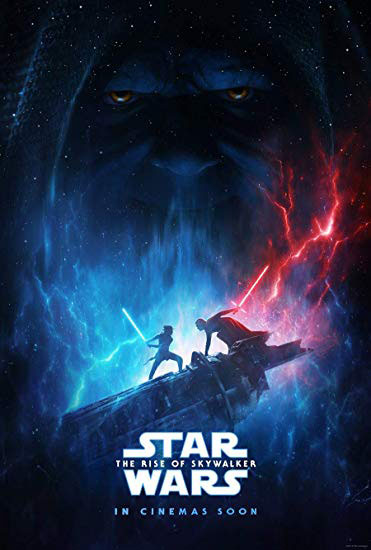“Rise of Skywalker” packs a punch, perhaps too much

Mayhem has struck in a galaxy far, far away. In “Star Wars: The Rise of Skywalker,” the final movie in the sequel trilogy of Star Wars films, sprawling imperial fleets gather, rebels scour planets and the Galactic Empire approaches a test of strength.
Director J. J. Abrams has put the narrative legacies of the prior films and the basic development of the movie into mayhem too, resulting in a deeply flawed but forceful conclusion.
Rey and her comrades reappear as they learn of a Sith resurgence on Exegol, sending them on a protracted scavenger hunt for the requisite wayfinder. Meanwhile, Kylo Ren contends with the aftermath of a post-Snoke Galactic Empire as Emperor Palpatine makes his return, along with countless other characters and subplots.
The sheer quantity of storylines has resulted in a breakneck tempo that never bores. Like previous films, viewers will welcome a succession of richly-detailed planets. The design of Exegol as a snowy, mysterious and vaguely Gothic world is beautiful and evocative, while the wreckage of the Death Star on a planet with cloudy skies and surging waves makes for a powerful setting.
Though Daisy Ridley adequately portrays Rey’s identity struggles, it is Adam Driver’s Kylo Ren who has the strongest progression from “The Force Awakens.” Driver depicts a perplexed, mercurial Kylo Ren with verve.
But these aspects are mere respites from the remainder of the movie.
The drawback of ceaseless action and cuts is truncated development, which is evident both with Poe Dameron’s fragment of a backstory and the narrative ejection of Rose Tico despite her prior importance.
The attempts at twists throughout fail as they lack the preparation necessary for a satisfying payoff. Conversely, a pivotal exchange between Finn and Rey is unambiguously foreshadowed but never arrives.
All this happens amid gratuitous action sequences. In the final battle, a dozen rebels riding a pack of animals around a navigation tower become an existential threat to a vast fleet of Star Destroyers in one of many absurd scenes.
In more than any prior Star Wars films, “The Force” has become a narrative crutch. This is evident in Palpatine’s return, which disrupts continuity and is explained away through his “unnatural abilities.”
The most irritating aspect of “Rise of Skywalker” is its insistence on an unambiguous moral dichotomy. Often times the movie raises questions about who is on which side, but it never stops to consider what the division means, instead opting to babble platitudes about working together and believing in yourself.
Abrams has made a finale, but not a good one. “Rise of Skywalker” is recommended for the most devoted Star Wars fans, but casual viewers will lack the necessary patience.






















































